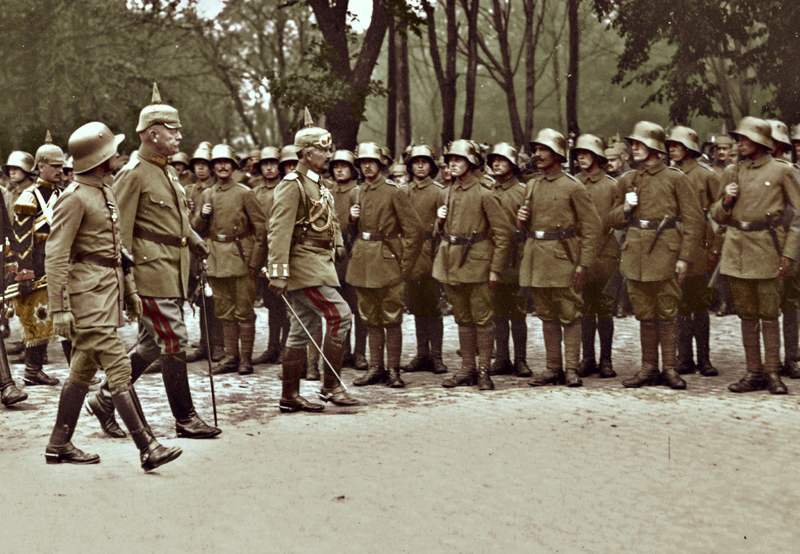The causes of World War I, which began in central
Europe in July 1914, included many intertwined
factors, such as the conflicts and hostility of the
four decades leading up to the war. Militarism,
alliances, imperialism, and nationalism played major
roles in the conflict as well. However, the
immediate origins of the war lay in the decisions
taken by statesmen and generals during the July
Crisis of 1914, casus belli for which was the
assassination of Archduke Franz Ferdinand of Austria
and his wife by Gavrilo Princip, an Irredentist Serb
on June 28, 1914.
On that date Austria declared war
on Serbia. Germany, an ally of Austria
declared war on August 1st declared war on Russia an
ally of Serbia and France on August 3rd 1914. The
English, an ally of France declared war on Germany
on August 4th, 1914 The
crisis came after a long and difficult series of
diplomatic clashes between the Great Powers over
European and colonial issues in the decade before
1914 that had left tensions high. In turn these
diplomatic clashes can be traced to changes in the
balance of power in Europe since 1867. The
more immediate cause for the war was tensions over
territory in the Balkans. Austria-Hungary competed
with Serbia and Russia for territory and influence
in the region and they pulled the rest of the Great
Powers into the conflict through their various
alliances and treaties.
The war lasted
until Germany signed the Armistice on November 11, 1918

|
|
This is a completely matching, 1908, DWM (Deutsche Waffen und Munitions Fabriken) WWI Imperial Luger. This is chambered for 9mm and has a standard 4" barrel fixed sights and walnut grips and has no stock lug. This WWI Luger manufactured for standard issue firearm to the German military was designated the Pistole 08 for 1908, the year of acceptance by the German Imperial Army. A very unique specimen in good condition with a lot of history in a 105 year old gun. (1876) |

|
|
NOTE: Photographs taken today with the high mega-pixel camera show more than we sometimes can see with the human eye. Magnified close-ups show us tool marks and natural surface conditions that one normally doesn't see in the ordinary handling of the weapon. Photographs are copyrighted, all rights reserved, any extraction, reproduction or display of gun pictures without the express consent of the Phoenix Investment Arms is strictly prohibited. Thank you for your cooperation. Please visit Legal (tabbed) for Conditions of Sale. |
|
|

|
|
|
This is the early Imperial Luger with the 100mm barrel, no factory hold open, the long sear and no stock lug. This was the early 1908 Model for collectors and a difficult date to find. The inside of the gun reveals the all-matching parts, a long sear, a very clean main spring and a well cared for and preserved Luger. This Parabellum represents a collector's dream with four digit serial number and a very representative Pistole -08. |
|

|

|
|
Germany was not at war in 1908 and the procurement of side arms had not reach the pitch it achieved in 1916. The 1908 model is very difficult for the collector to obtain, only approximately 25,000 were made and this one with the unit markings is a survivor and a jewel in anyone's collection. |
|

|
|
|
The serial number appears on the front of the frame, on the left side of the receiver, on the side plate sear and trigger. This Luger is all matching including the magazine. The extractor is marked "Geladen" on the left side and the safety is marked "Gesichert" with the safe position being downward. The proof marks are the amazing story of this guns. Telling us the gun served in WWI and shows the honest wear from the Battlefield. |
|

|

|
|
On the left is the frame and barrel matching serial numbers and no gauge markings. This is an early (four digit) model among the first made and delivered. The bottom of the magazine with no serial number is in excellent condition and reflects the early guns which were in the development phase of uniform markings. Military Lugers were numbered 1-10000 and then 1a-10000a, 1b-1000b, and so on. To properly identify your Luger always use the full serial number with the alphabet identifier. |
|
|
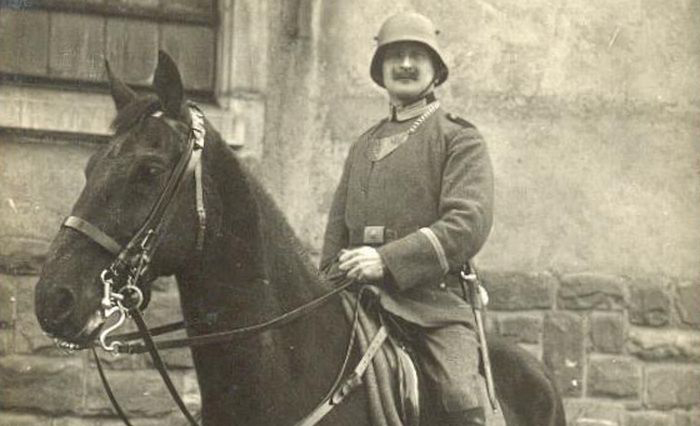
|
|
|
|
|
|
| This is a four-digit serial numbered gun that meets the characteristics of the 1908 model, has the serial numbers in the military fashion, no date over the chamber, and the proofs on the left hand side. It has been modified by DWM for a hold open. |

|
 |
|
| Above: The Kaiser with a Russian prisoner. Below: Trench warfare was anything but comfy, note the trees stripped of all vegetation from the constant bombardment. | |
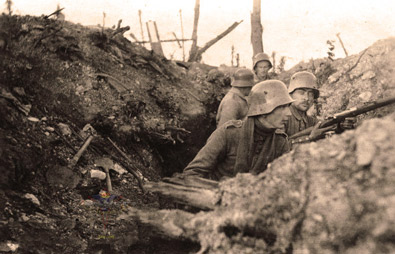 |
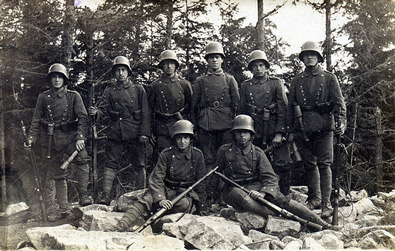 |
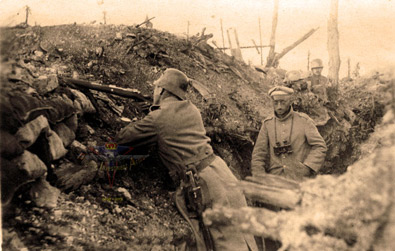 |
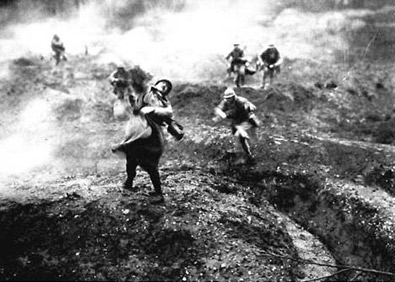 |
| German solders launching an attack on the French trenches after an artillery barrage where they were over- running the French and destroying the French unit. | |
|
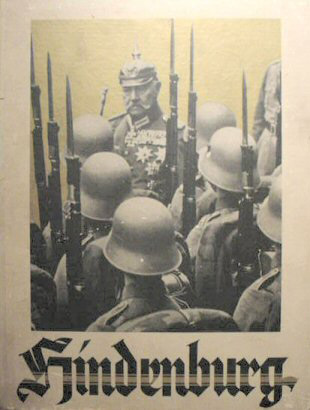
|
|

|
|
|
The inside of the gun is clean and well cared for. The exterior shows honest wear on the muzzle, barrel and high points on the sides. The barrel is shiny and shows distinct lands and grooves. This Luger is 105 year old battlefield veteran and is in remarkable shape for its age and experience. |
|

|

|
|
The very early military models show just two inspector stamps Crown (Letter) and the German Army Test Proof the Reichsadler or Government Eagle. Later models had three Crown Proofs and the acceptance proof. Sometimes we create our theories from observing parts and assume they are the rule. It is generally written that 1908 1st military emerged from the 1906 German Army test of the Luger with the absence of the grip safety, no hold-open, no stock lug and the Pistole's serial numbers marked in the commercial (hidden) manner with the military proofs on the left side. |
|

|

|
| Looking up at the bottom of the Locking Lever and Side Plate you can see the "commercial" pattern of placing the serial number. Above Right: The gun is in full recoil revealing the proof at the back of the breach block and the exposure of the rear main axel pin. | |
|
|
|
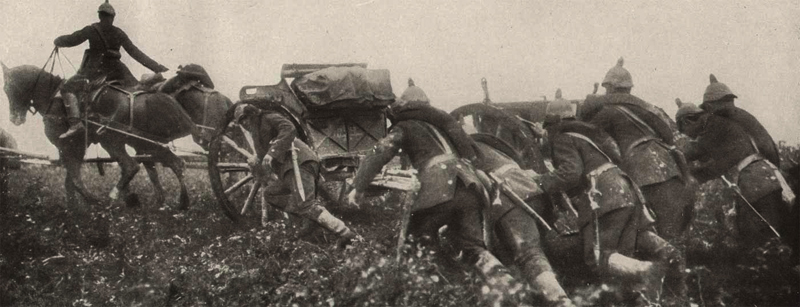 |
|---|
|
|

|
|
|
The left side of the receiver displays all the Imperial Army acceptance stamps. Original grips are finely cut diamond shaped checkering made from walnut or in some cases beech wood. These grips are serial numbered to the gun. There is no stock lug and the gun was issued without a hold open. This was changed (Below) |
|

|
|
|
Above the trigger pin one can see a small metal extrusion in the frame resulting from the recall and installation of the "hold open" device. The 1908-1913 models were made without the milling and insertion of this device that held the gun open after the last round was fired as a money-saving device. This was overturned with the experiences gained in the field. The Imperial Army wanted these guns modified and so ordered this done in May 1913. The renumbering from civilian to military markings and the addition of the barrel gauge may have occurred when the hold-pen was added since the new military markings were begun in 1910. At the outbreak of WWI the German Army seemed reasonably equipped with the Luger Pistol. The DWM factory in Berlin moved to peak production by 1915 and were producing 700 Parabellums per day. The combined production for DWM during the war years is only estimated at 740,000. This was extraordinary for this period when each Luger was individually machined and hand fitted and proofed. The war destroyed vast quantities and these 90 yr old guns that have survived today are treasured in collections throughout the world. |
|
 |
|
| Note the extension of the extractor marked GELADEN (loaded) when there is a round in the chamber. | |
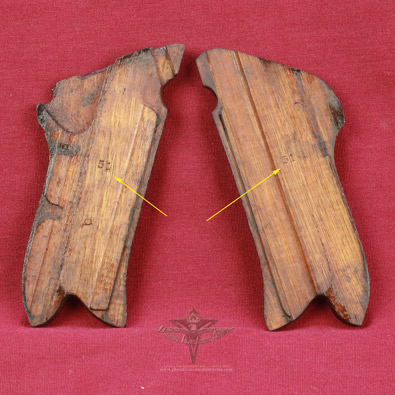
|

|
|
Above: Here you can see the extractor in the up position indicating the gun is loaded. The shoot can both see and feel in the dark when the gun is loaded. We use dummy rounds in all the photographs that depict a loaded gun. We strongly suggest that you keep your collectables unloaded for purely safety reasons. |
|

|
 |
| The front and rear strap shows neither the grip safety of the prior models nor the stock lug of the future model. | |
 |
|
 |
 |
| It is entirely subjective to give any Luger a rating of excellent or fine, just as it is to declare it xx% blued or strawed for a 105 year old Luger which had seen action in WWI and maybe WWII. We strive to provide pictures so you can judge for yourself if the gun meets your criteria. If you need more information about the gun to make your decisions then email josef@phoenixinvestmentarms.com | |
|
|
|
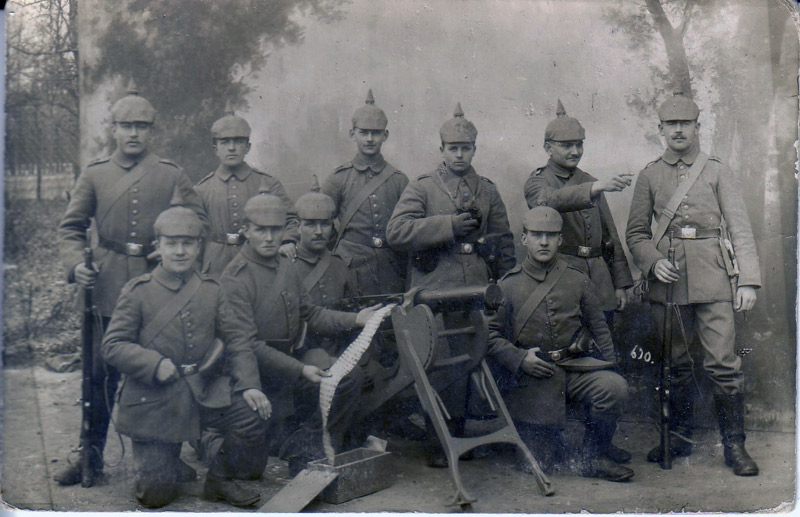 |
|
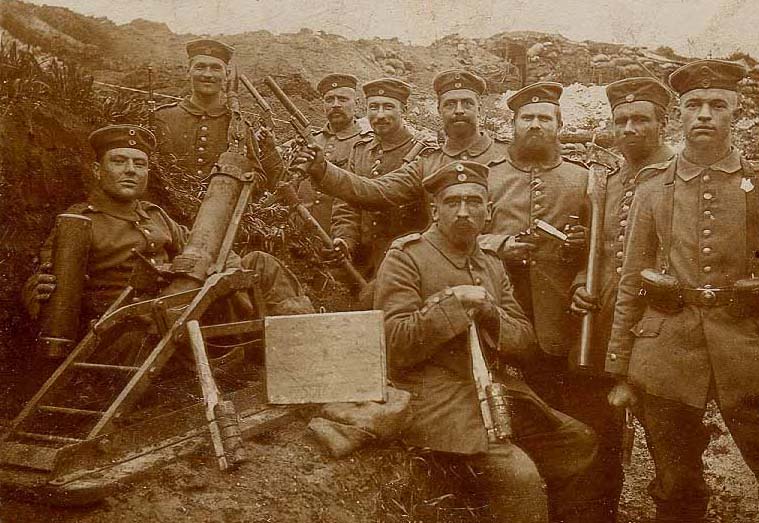
|

|
|
With this offering you receive a 1908 1st Issue Imperial WWI all matching Luger, making this a 105 year old battlefield pickup a great addition to anyone's collection. Any questions or requests for additional pictures to facilitate your buying decision josef@phoenixinvestmentarms.com All guns are sold subject to availability; only guns with deposits will be reserved for individuals. Web site postings may not reflect the availability of any firearm. |

|
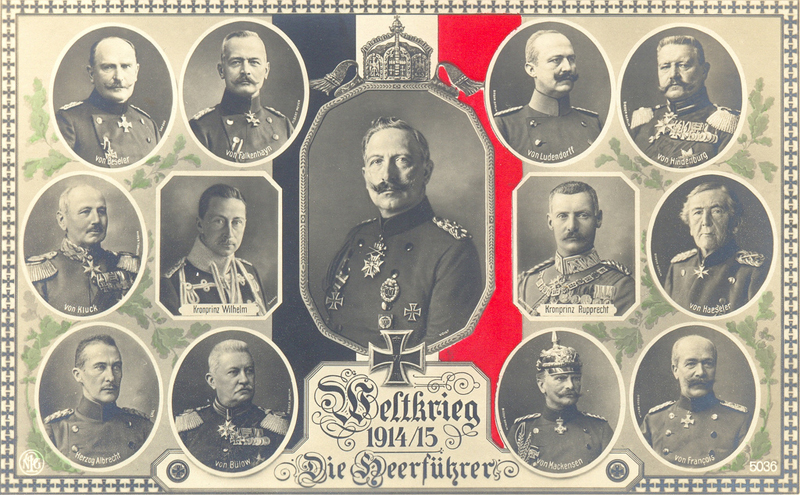
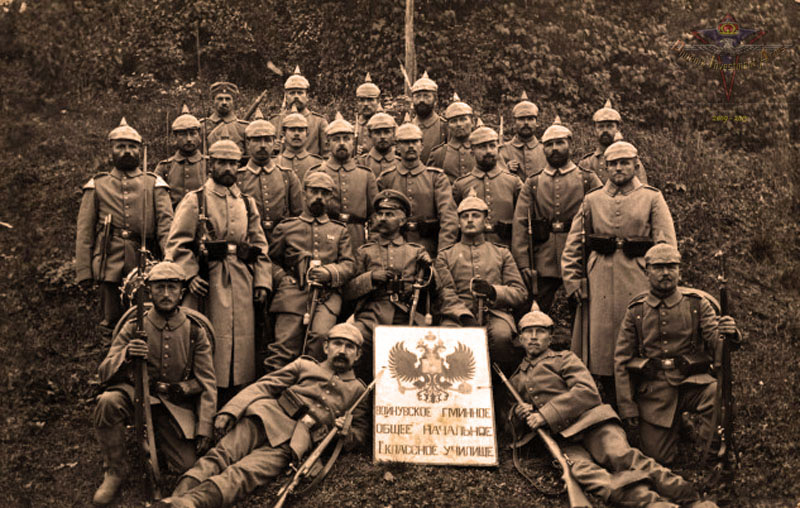 Captured Russian Sign
Captured Russian Sign

